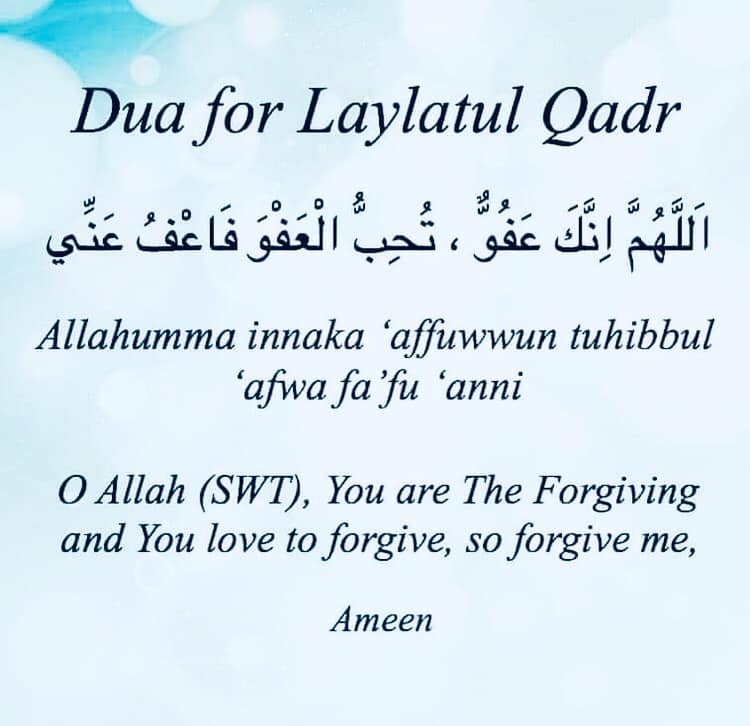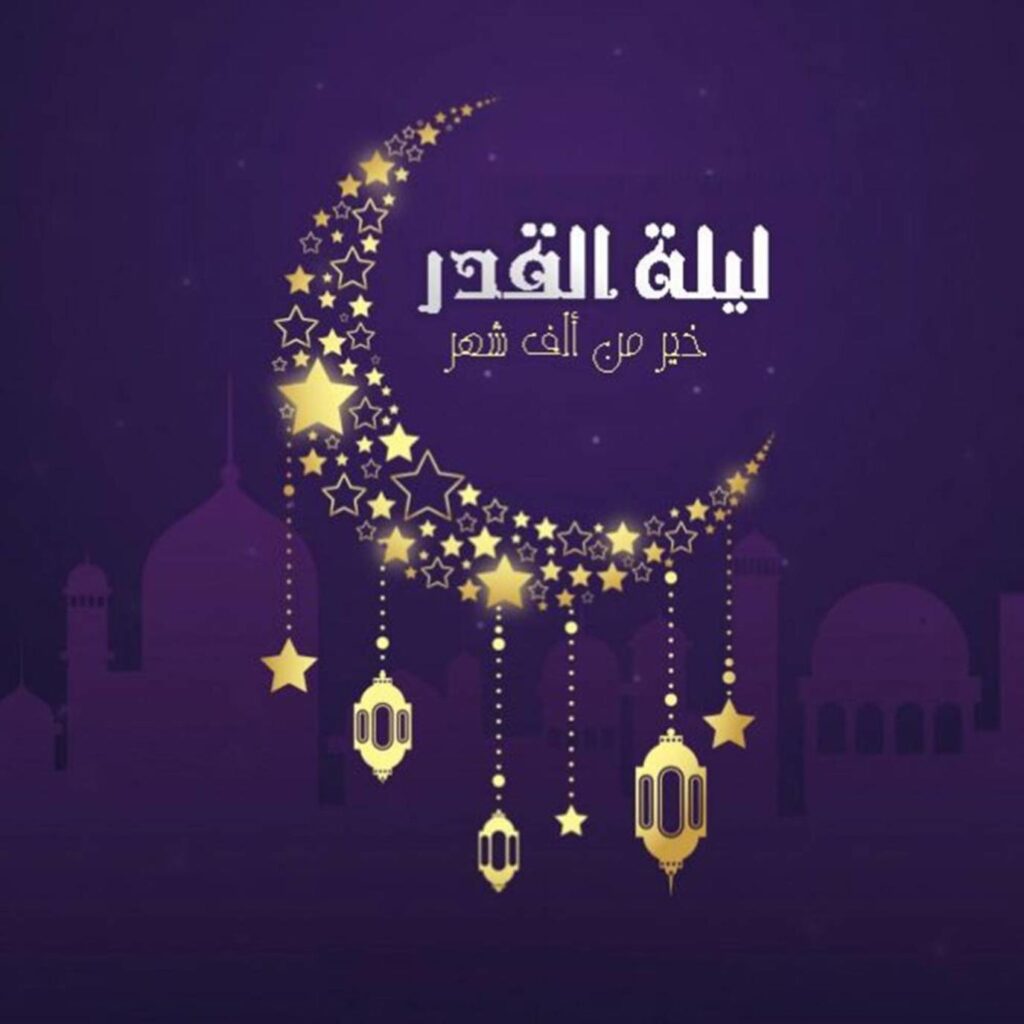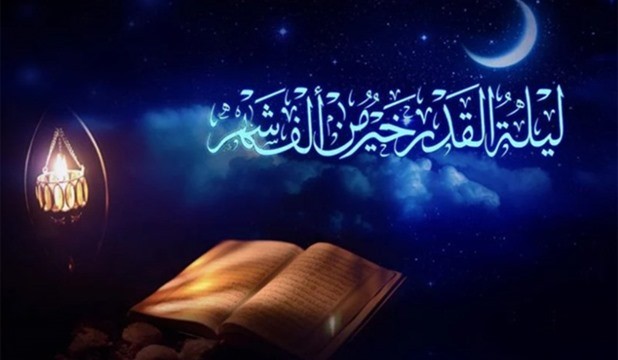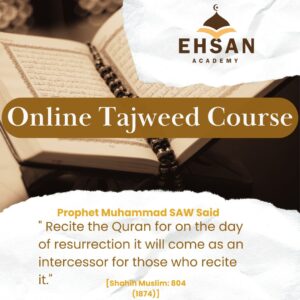Laylat al Qadr, also known as the Night of Power, is one of the most significant nights in the Islamic faith. It is believed to be the night when the first verses of the Quran were revealed to the Prophet Muhammad (peace be upon him). In this article, we will explore the significance of Laylat al Qadr, its history, and the acts of worship that are recommended on this night.
Table of Contents
- 1 History and Significance of Laylat al Qadr
- 2 Acts of Worship on Laylat al Qadr
- 3 Celebrating Laylat al Qadr
- 4 what is laylat al-qadr & importance of laylat al qadr
- 5 How was the prophet Muhammed spending Laylatul qadr
- 6 What are some common prayers recited on Laylatul Qadr?
- 7 What are some other ways Muslims observe Laylatul Qadr?
- 8 What are some common charitable causes Muslims donate to on Laylatul Qadr?
- 9 What are some of the benefits of spending Laylat al Qadr in the mosque?
- 10 Conclusion
History and Significance of Laylat al Qadr
Laylat al Qadr is believed to have occurred during the last 10 nights of Ramadan, although the exact date is not known. It is said that the Prophet Muhammad (peace be upon him) received a revelation from Allah (God) about the significance of this night, and that it is better than a thousand months of worship.
The Quran describes Laylat al Qadr as a night of peace and blessings, during which the angels descend to earth and the affairs of the world are decided. It is a night of forgiveness and mercy, and it is believed that those who seek forgiveness and perform acts of worship on this night will be rewarded greatly.
Muslims believe that Laylat al Qadr is a time when their prayers are more likely to be answered, and that it is a time of spiritual renewal and purification. It is also believed to be a time when one’s destiny for the coming year is decided, and therefore, it is an important time for reflection and repentance.
Acts of Worship on Laylat al Qadr
On Laylat al Qadr, Muslims are encouraged to perform acts of worship and seek forgiveness for their sins. The following are some of the acts of worship that are recommended on this night:
1. Recitation of the Quran: Muslims are encouraged to recite the Quran on Laylat al Qadr, as it is believed that the Quran was first revealed on this night. Many Muslims spend the entire night reciting the Quran, and some mosques hold special Quran recitation sessions.
2. Voluntary Prayers: Muslims are encouraged to perform voluntary prayers, such as Taraweeh and Tahajjud, on Laylat al Qadr. These prayers are believed to bring great reward and blessings from Allah.
3. Giving to Charity: Muslims are encouraged to give to charity on Laylat al Qadr, as it is believed that charity given on this night is multiplied in reward. Many mosques and charitable organizations collect donations on this night.
4. Seeking Forgiveness: Muslims are encouraged to seek forgiveness for their sins on Laylat al Qadr. It is believed that Allah is most merciful on this night, and that those who seek forgiveness will be forgiven.
5. Dua: Muslims are encouraged to make dua, or supplication, on Laylat al Qadr. It is believed that dua made on this night is more likely to be accepted, and that one’s prayers will be answered.

Celebrating Laylat al Qadr
Muslims around the world celebrate Laylat al Qadr in different ways. Some spend the entire night in prayer and worship, while others gather with family and friends to break their fast and celebrate the night. Many mosques hold special programs and events on Laylat al Qadr, including Quran recitation, lectures, and communal prayers.
In some countries, such as Egypt and Jordan, it is traditional to light up the streets and mosques with decorative lights and lanterns on Laylat al Qadr. This is known as the Night of the Lanterns, and it is a beautiful and festive way to celebrate the night.
In addition to the acts of worship mentioned in the previous section, there are other ways that Muslims observe Laylat al Qadr. Some Muslims spend the entire night in seclusion, seeking spiritual enlightenment and communion with Allah. Others engage in acts of charity and service, such as volunteering at a local soup kitchen or donating to a charitable organization.
It is also believed that the rewards for good deeds performed on Laylat al Qadr are multiplied, and therefore, many Muslims try to make the most of this night by performing as many good deeds as possible. This includes acts of kindness, such as visiting the sick or elderly, helping a neighbor, or donating to a worthy cause.
In some cultures, it is also traditional to prepare special foods and sweets on Laylat al Qadr. These may include traditional dishes such as samosas, biryani, and sweet desserts like seviyan or baklava.
Although the exact date of Laylat al Qadr is not known, many Muslims observe the odd-numbered nights of the last ten nights of Ramadan, such as the 21st, 23rd, 25th, 27th, or 29th night. It is believed that the night of Laylat al Qadr falls on one of these odd-numbered nights, and therefore, many Muslims spend these nights in worship and prayer.
Laylat al Qadr holds a special place in the hearts of Muslims worldwide, and the night is observed with great devotion and reverence. In addition to the acts of worship and celebrations mentioned earlier, some Muslims also engage in acts of self-reflection and introspection on this night. They evaluate their actions over the past year and make resolutions to improve themselves in the coming year.
Many mosques and Islamic centers around the world hold special programs on Laylat al Qadr to commemorate the night. These programs often include Quran recitation, lectures, and communal prayers. Many Muslims spend the night at the mosque, engaged in worship and reflection.
In some countries, such as Indonesia and Malaysia, it is traditional to perform a special prayer called the Witir prayer on Laylat al Qadr. The prayer consists of three units, and it is believed to bring great reward and blessings.
The Night of Power is also a time when Muslims seek to connect with Allah on a deeper level. It is believed that Allah’s mercy and forgiveness are more abundant on this night, and that He is more responsive to the prayers of His servants. Muslims therefore spend the night in prayer and supplication, seeking Allah’s guidance, mercy, and forgiveness.
Finally, Laylat al Qadr is a time when Muslims reflect on the meaning and significance of the Quran. It is believed that the Quran was revealed in its entirety on this night, and therefore, Muslims focus on reciting and studying the Quran on this night.
In conclusion, Laylat al Qadr is a night of great significance in the Islamic faith. It is a time of worship, reflection, and renewal, and it is believed to be better than a thousand months of worship. Muslims worldwide observe this night with great devotion and reverence, seeking Allah’s mercy, forgiveness, and blessings. May Allah accept our worship and prayers on Laylat al Qadr and bless us with His mercy and forgiveness.
what is laylat al-qadr & importance of laylat al qadr
Laylat al Qadr, which translates to the “Night of Power” or “Night of Destiny,” is one of the most significant nights in the Islamic faith. It is believed to be the night when the first verses of the Quran were revealed to the Prophet Muhammad (peace be upon him). The importance of Laylat al Qadr stems from several reasons, including:
1. It is better than a thousand months: The Quran states that the Night of Power is better than a thousand months of worship. This means that any good deeds performed on this night are multiplied in reward, making it a highly significant night for Muslims.
2. The Quran was revealed on this night: According to Islamic tradition, the first verses of the Quran were revealed to the Prophet Muhammad (peace be upon him) on Laylat al Qadr. This makes the night highly significant for Muslims, as it marks the beginning of the revelation of the Quran.
3. It is a night of forgiveness and mercy: Muslims believe that on Laylat al Qadr, Allah’s mercy and forgiveness are abundant. It is a time when Muslims seek forgiveness for their sins, and it is believed that Allah is more likely to forgive sins on this night.
4. It is a night of spiritual renewal: Laylat al Qadr is a time when Muslims seek to connect with Allah on a deeper level. It is a night of worship, reflection, and purification, and it is believed to be a time when one’s destiny for the coming year is decided.
5. It is a time of great reward: Muslims believe that any good deeds performed on Laylat al Qadr are multiplied in reward. This makes the night a highly significant time for acts of worship, charity, and good deeds.

How was the prophet Muhammed spending Laylatul qadr
The Prophet Muhammad (peace be upon him) spent Laylat al Qadr in worship and devotion, according to Islamic tradition. It is reported that he would stay up the entire night in prayer and supplication, seeking Allah’s mercy, forgiveness, and blessings.
The Prophet would engage in a variety of acts of worship on Laylat al Qadr, including reciting the Quran, performing voluntary prayers, and making supplications to Allah. It is said that he would recite long portions of the Quran, seeking to connect with Allah on a deeper level and gain a greater understanding of the revelation.
The Prophet Muhammad (peace be upon him) also encouraged his followers to observe Laylat al Qadr with devotion and reverence. He is reported to have said, “Whoever stays up during Laylat al Qadr out of faith and seeking reward, will have all their past sins forgiven” (Sahih Bukhari).
Additionally, the Prophet taught his followers that Laylat al Qadr is a night of great significance and that they should seek to make the most of it by engaging in acts of worship, seeking forgiveness, and reflecting on their faith.
The Prophet Muhammad (peace be upon him) spent Laylat al Qadr in a state of deep devotion and worship, and he encouraged his followers to do the same. Here are a few more details about how he spent this night:
1. He would retreat to the mosque: It is reported that the Prophet would spend Laylat al Qadr in the mosque, seeking seclusion and focusing on his worship. He would sometimes bring a mat or a pillow to the mosque to make himself more comfortable during his extended prayer sessions.
2. He would recite long portions of the Quran: The Prophet was known for his beautiful recitation of the Quran, and he would often recite long portions of the scripture on Laylat al Qadr. He would recite with deep feeling and emotion, seeking to connect with Allah on a profound level.
3. He would make supplications to Allah: The Prophet would also spend time making supplications to Allah on Laylat al Qadr, seeking forgiveness for his sins and asking for Allah’s blessings and mercy. He would encourage his followers to do the same, knowing that this night is a time when Allah’s mercy and forgiveness are particularly abundant.
4. He would engage in acts of worship: In addition to reciting the Quran and making supplications, the Prophet would also engage in other acts of worship on Laylat al Qadr. This might include performing voluntary prayers, giving charity, or engaging in acts of kindness and service.
Overall, the Prophet Muhammad (peace be upon him) spent Laylat al Qadr in a state of deep devotion and worship, seeking to connect with Allah on a profound level. He encouraged his followers to do the same, knowing that this night is a time of great significance and reward in the Islamic faith.
What are some common prayers recited on Laylatul Qadr?
There are several prayers and supplications that are commonly recited on Laylat al Qadr. These include:
1. Surah Al-Qadr: This is a short chapter of the Quran, consisting of only five verses. It describes the significance of Laylat al Qadr and the blessings that come with it. Muslims often recite this surah throughout the night on Laylat al Qadr.
2. Dua laylat al qadr: This is a supplication that is recited to seek Allah’s mercy, forgiveness, and blessings on the Night of Power. It is a powerful prayer that is believed to be accepted on this night.
5. Dua for Forgiveness: This is a supplication that is recited to seek Allah’s forgiveness for one’s sins. It is a powerful prayer that is believed to be accepted on Laylat al Qadr.

What are some other ways Muslims observe Laylatul Qadr?
In addition to the acts of worship and prayers mentioned earlier, there are other ways that Muslims observe Laylat al Qadr. Here are some examples:
1. Reciting the entire Quran: Some Muslims make it a goal to recite the entire Quran on Laylat al Qadr. This is a powerful act of worship that requires dedication and focus.
2. Seeking knowledge: Laylat al Qadr is also a time when Muslims seek to increase their knowledge of Islam. Many mosques and Islamic centers hold special lectures and classes on this night, focusing on topics related to faith, spirituality, and Islamic history.
3. Volunteering: Some Muslims choose to spend Laylat al Qadr volunteering in their communities. They may help out at a local homeless shelter, soup kitchen, or hospital, or participate in a community service project.
4. Spending time with family: Laylat al Qadr is a time when families come together to celebrate and observe the night. They may break their fast together, engage in acts of worship, or simply spend time in each other’s company.
5. Making a charitable donation: Some Muslims choose to make a charitable donation on Laylat al Qadr, as it is believed that charity on this night is multiplied in reward. They may donate to a local mosque or Islamic charity, or give to a cause that is close to their hearts.
These are just a few examples of the many ways that Muslims observe Laylat al Qadr. The important thing is to engage in acts of worship, reflection, and service on this night, seeking Allah’s mercy, forgiveness, and blessings.
What are some common charitable causes Muslims donate to on Laylatul Qadr?
Muslims donate to a wide range of charitable causes on Laylat al Qadr, as it is believed that charity given on this night is multiplied in reward. Here are some common charitable causes that Muslims donate to on Laylat al Qadr:
1. Zakat: Zakat is one of the five pillars of Islam, and it is a form of obligatory charity that Muslims are required to give. Muslims who have wealth above a certain threshold are required to give 2.5% of their wealth to those in need. Many Muslims choose to give their zakat on Laylat al Qadr, as it is believed to bring great reward and blessings.
2. Sadaqah: Sadaqah is a voluntary form of charity that Muslims can give at any time. Many Muslims choose to give sadaqah on Laylat al Qadr, as it is believed that charity given on this night is multiplied in reward. Sadaqah can be given to a wide range of causes, such as providing food for the poor, supporting orphans, or funding education programs.
3. Mosque donations: Many Muslims choose to donate to their local mosque on Laylat al Qadr. Mosques often hold special programs and events on this night, and donations can be used to fund these programs, as well as to support the ongoing maintenance and operation of the mosque.
4. Islamic charities: There are many Islamic charities around the world that provide support and aid to those in need. Muslims may choose to donate to these charities on Laylat al Qadr, knowing that their donations will go towards supporting causes such as disaster relief, education, and healthcare.
5. Humanitarian causes: Muslims may also choose to donate to non-Muslim charities that support humanitarian causes, such as providing aid to refugees, supporting clean water initiatives, or funding medical research.
These are just a few examples of the many charitable causes that Muslims donate to on Laylat al Qadr. The important thing is to give with a pure intention and a desire to help others, seeking Allah’s pleasure and blessings.
What are some of the benefits of spending Laylat al Qadr in the mosque?
Spending Laylat al Qadr in the mosque has many benefits for Muslims. Here are some of the benefits:
It provides a peaceful environment for worship: The mosque is a peaceful and quiet place, where distractions are minimized. Spending Laylat al Qadr in the mosque allows Muslims to focus on their worship and connect with Allah on a deeper level.
It promotes a sense of community: Spending Laylat al Qadr in the mosque allows Muslims to come together as a community, united in their devotion and worship. This creates a sense of camaraderie and strengthens the bonds of brotherhood and sisterhood in the Muslim community.
It provides access to knowledgeable scholars: Many mosques hold special programs on Laylat al Qadr, featuring lectures and teachings from knowledgeable scholars. Spending the night in the mosque allows Muslims to benefit from the knowledge and wisdom of these scholars.
It increases the reward for worship: Muslims believe that any good deeds performed on Laylat al Qadr are multiplied in reward. Spending the night in the mosque, engaged in acts of worship and devotion, is believed to bring even greater reward than worship performed at home or elsewhere.
It allows for extended periods of worship: Spending Laylat al Qadr in the mosque allows Muslims to engage in extended periods of worship, without the distractions and interruptions of daily life. This allows for a deeper level of focus and devotion, and a greater opportunity to connect with Allah.
Conclusion
Laylat al Qadr is a night of great significance in the Islamic faith. It is a time of forgiveness, mercy, and renewal, and it is believed to be better than a thousand months of worship. Muslims around the world observe this night by performing acts of worship, seeking forgiveness, and reflecting on their faith. May Allah accept our worship and prayers on Laylat al Qadr, and may He bless us with His mercy and forgiveness.







